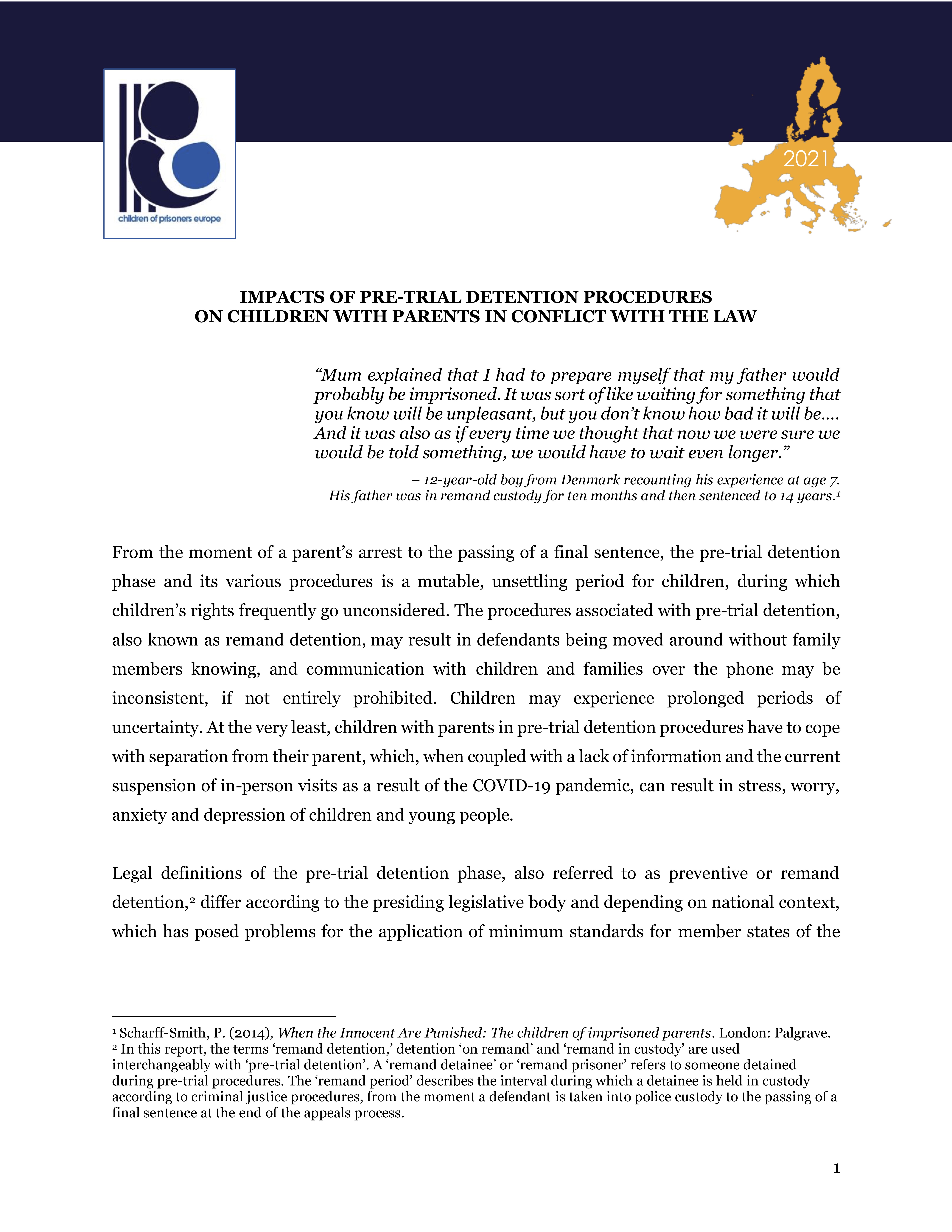“Mum explained that I had to prepare myself that my father would probably be imprisoned. It was sort of like waiting for something that you know will be unpleasant, but you don’t know how bad it will be…. And it was also as if every time we thought that now we were sure we would be told something, we would have to wait even longer.”
– 12-year-old boy from Denmark recounting his experience at age 7. His father was in remand custody for ten months and then sentenced to 14 years.
The pre-trial detention phase and its various procedures is an unsettling period for children, during which children’s rights frequently go unconsidered. Pre-trial detention procedures, also known as remand detention, may result in defendants being moved around without family members knowing, and communication with children and families over the phone may be inconsistent, if not entirely prohibited. At the very least, children with parents in pre-trial detention procedures have to cope with separation from their parent, which, when combined with a lack of information and restrictions to visits as a result of the COVID-19 pandemic, can result in stress, worry, anxiety and depression of children and young people.
This report examines pre-trial detention as a generally over-relied upon practice, with significant impacts on children and families. Across Europe there is close to 25 per cent of the prison population in pre-trial detention, and the average period of pre-trial detention is nearly half a year. There are no EU-wide procedures for assigning pre-trial detainees to a facility closer to home or in their home country, meaning family visits may be impossible or unaffordable for some children. Likewise, there is no common benchmark for the use of non-custodial pre-trial detention procedures when this will benefit the best interests of the child.
Greater focus on pre-trial procedures and how they impact children when a parent is in conflict with the law is required, as this report shows, for reasons including the following:
- This is a fundamental rights issue, which applies to both the defendant and the child of the defendant.
- Child rights are generally not considered during pre-trial procedures: Pre-trial detention procedures in the EU don’t systematically take into account the best interests of the child when a parent is arrested and placed in pre-trial custody. Basic common EU standards are lacking.
- Pre-trial family visits can be highly restrictive or entirely impossible, e.g., on the grounds of witness/evidence protection. As mentioned, pre-trial detention frequently happens in another country than the suspect’s country of residence and/or the country of residence of the child.
Read the full report here:


